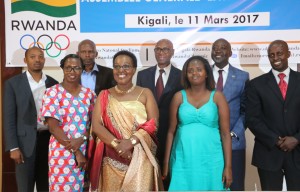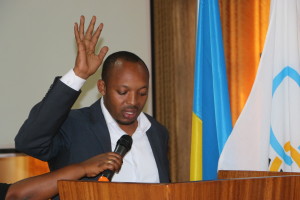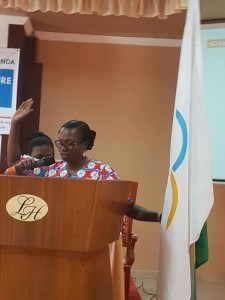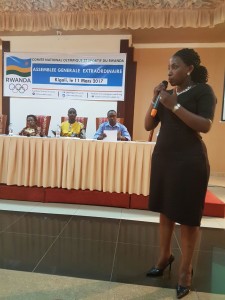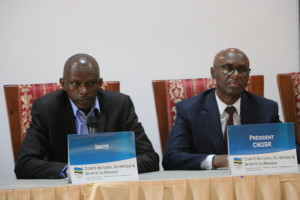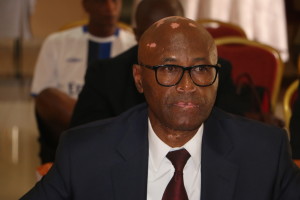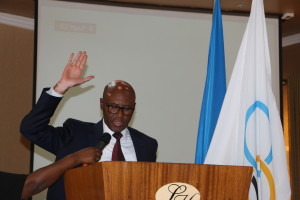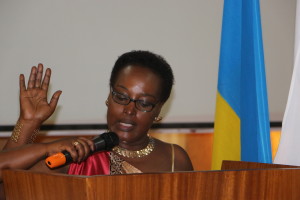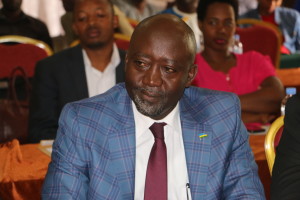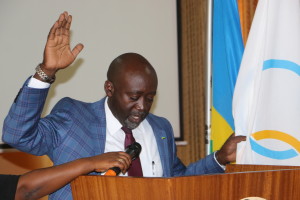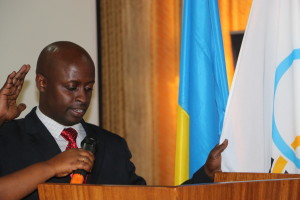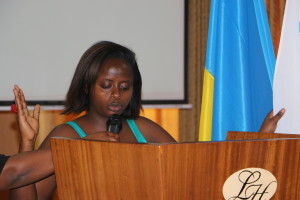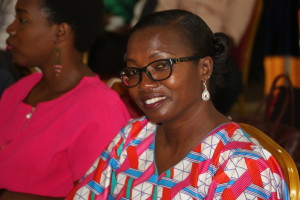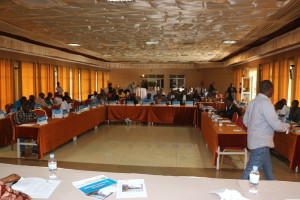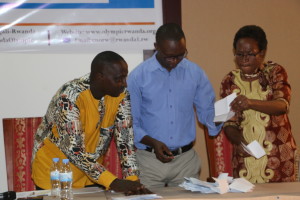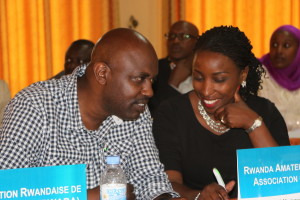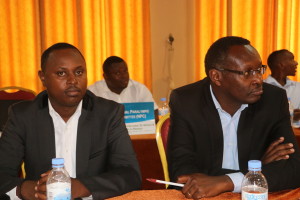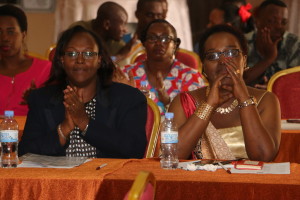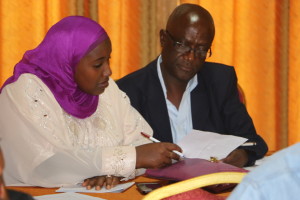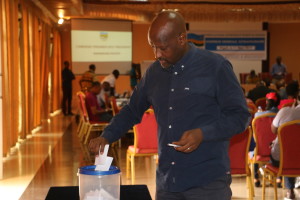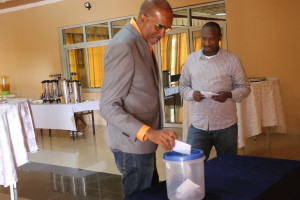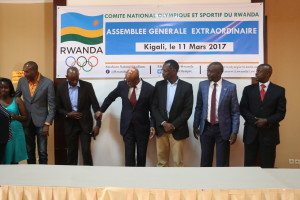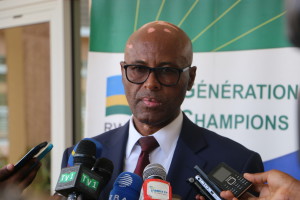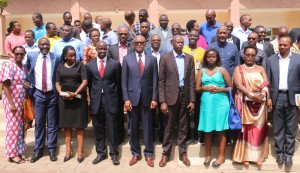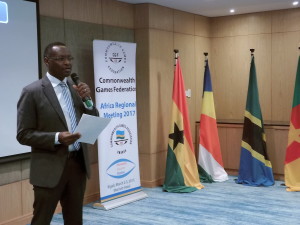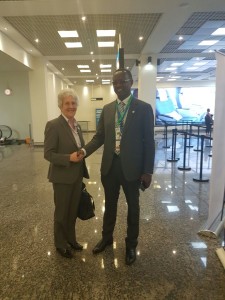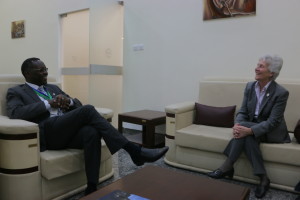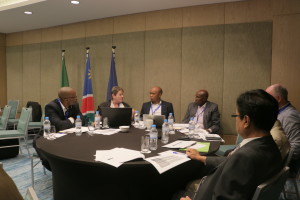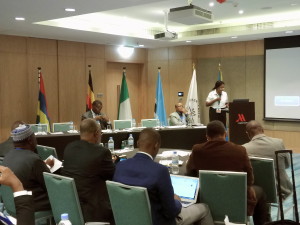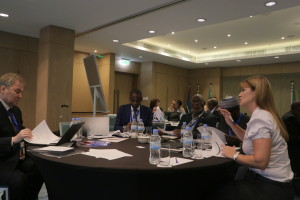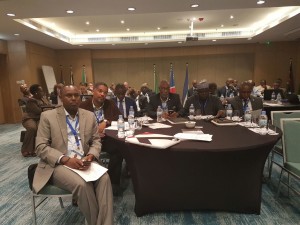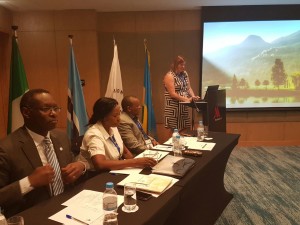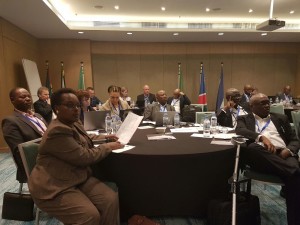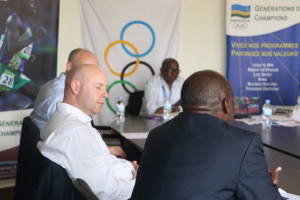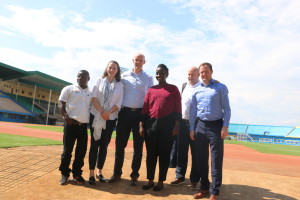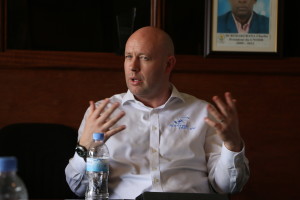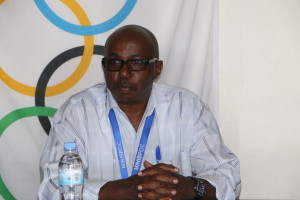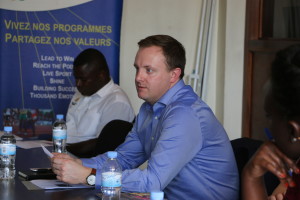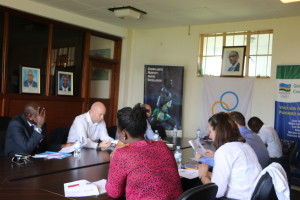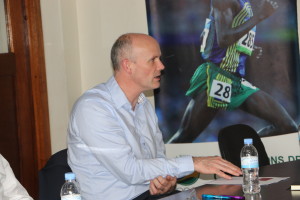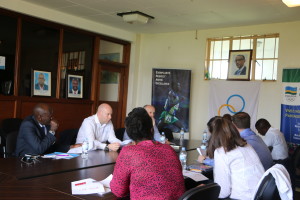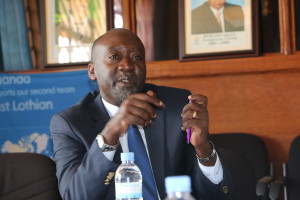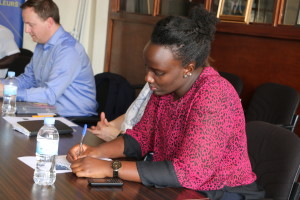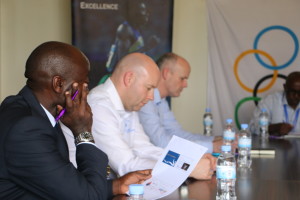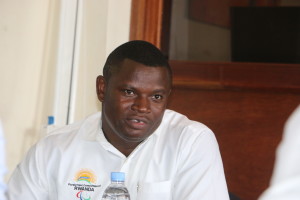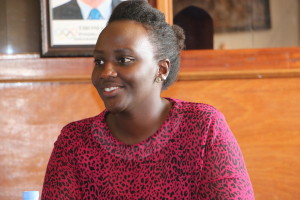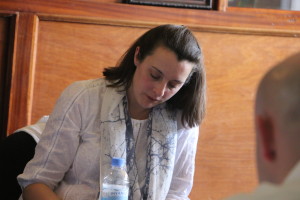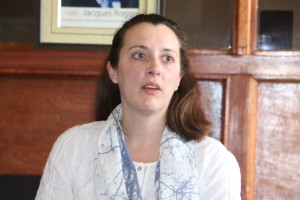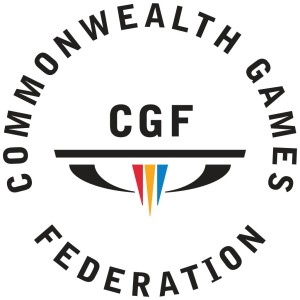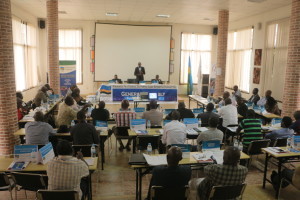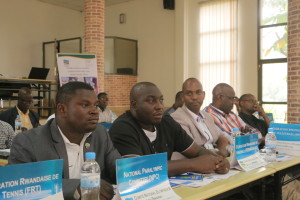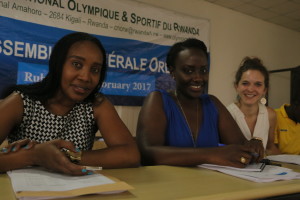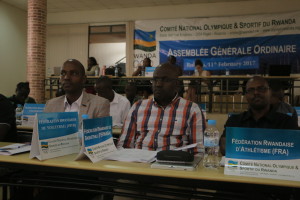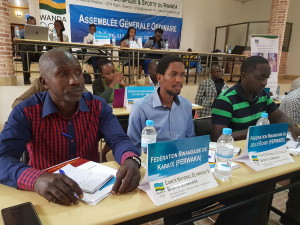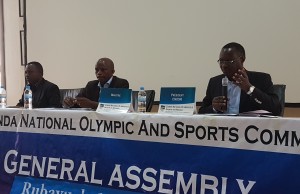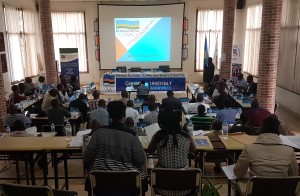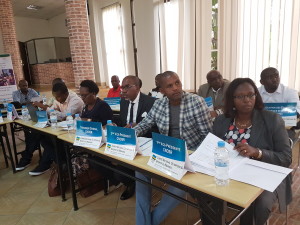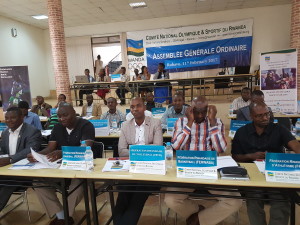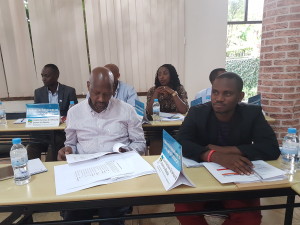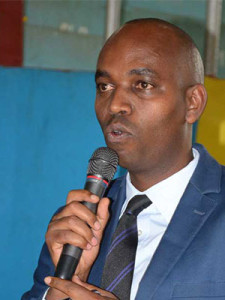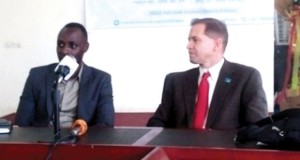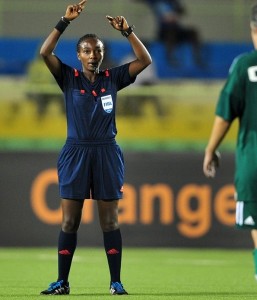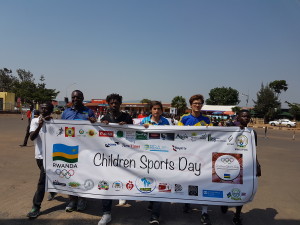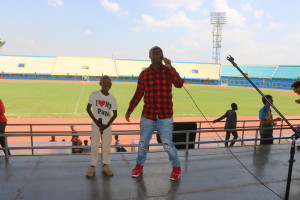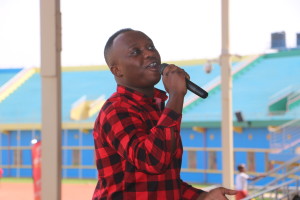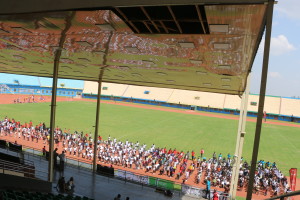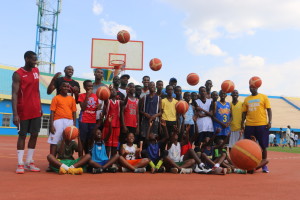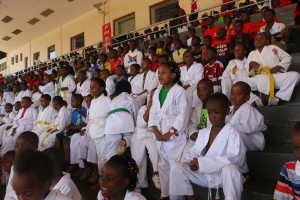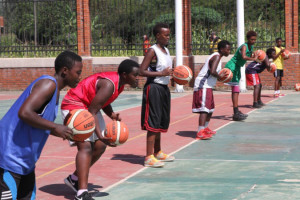
Born in Savannah Georgia, Joseph ‘Joby’ Wright is an American former college and professional basketball player, and men’s basketball head coach at Miami University and at the University of Wyoming.
A month ago, Wright was appointed as Rwanda National Basketball Federation (FERWABA) technical director. The American signed a two-year contract until end of 2018, taking over from Shema Maboko.
The new technical director will be responsible for a whole lot of things that will offer an element of continuity above and beyond training and improving skills among the coaches.
Wright is also charged with designing a basketball youth development programme, selecting national coaches for national basketball teams, looking for corporate sponsorship and organising trainings outside Rwanda.
Last week, Times Sport’s reporter Jejje Muhinde caught up with Wright and asked him about the typical work of a technical director, his responsibilities, why he accepted to take up the job, and what plans he has especially regarding youth development.
Below are the excerpts:
For those who are not well conversant with basketball, can you briefly describe the typical work a technical director.

Joseph Wright.
My role and responsibilities will be quite unique compared to the typical technical director position.
I have been appointed to contribute to the development of strategic national planning for youth development programmes at the grassroots level through the schools, up to the senior national teams, both men and women.
Also included will be the men and women national leagues, as well as enhancing basketball structure at the university level. I will also be involved, as determined by FERWABA, with the recently opened Basketball Academy in Masanze.
In addition, I will be responsible for marketing and promotion of basketball locally and internationally, which includes assisting in the design of sponsorship proposals targeting special needs to grow our development outreach programme.
Hopefully, by having steady partners, it will help to increase the number of participating teams, boost infrastructure development and create special programmes to increase the participation of girls and young women in basketball.
I am also responsible for elevating coaching techniques and skills as well as designing a Coaches Certification Programme. We will also be involved with the designing of a training programme to increase the strength, physical conditioning, endurance and nutrition to maximise the potential of the players.
Something else that I am charged with is to increase our visibility and profile in the region as well as to raise our level of competitiveness to the standard of the top teams in Africa.
You played basketball at the professional level, what inspired you to go into coaching and now directorship?
One of the most difficult transitions to make as a basketball player to becoming a basketball coach is developing a coach mindset before you can develop a coaching skill set.
As a player, all you are concerned with is you as an individual, being ready to play and contribute in any way possible as an individual.
But, as coach, you have to have a complete understanding of the game. The organisation of a team, practice planning, game management, individual and team skill development, conflict resolution, analytical thinking, problem solving, the rules of the game, players rotation, substitute patterns.
Having a personal philosophy based on athletic, education and life experience, teacher, motivator, role model, father, brother, disciplinarian, friend, mentor, great communicator, and finally a winner.
You have to become a student of the game in order to teach the game to others.
In regards to becoming the Technical Director of Rwandan basketball, although we have some challenges, this role offers me a tremendous opportunity to contribute significantly to taking basketball in this country to the next level.
I bring to this position my life experience, my athletic experience as a player and coach, my education, my expertise as an administrator and programme manager, experiences and opportunities that I have had in basketball.
Do you think Rwandan basketball has potential to rise at the continental and world level?
I would not have taken this position or accepted the challenge to become the national technical director if I didn’t believe in the people that I am going to be working with. The team at FERWABA impressed me with their commitment to taking basketball in Rwanda to another level.
It will not be easy and we’ll not achieve our target overnight, but I have seen a lot of potential in some of the young players, which gives me hope that we have the base to build on going forward.
It must be clearly understood that to build a championship programme is a gradual process, which begins with vision, leadership, organisation, management, community support, sponsorship from local business. We also need the media on board because we are all in this together.
When I was with NBA Africa, I came here with Luol Deng, Toronto Raptors president and General Manager Massi Userri and NBA Africa President Amadou Fall, in 2012, to conduct basketball camps; it is when I realised that Rwanda was a special place.
After that, I came back about five times in the last 8 months and after each visit, I became more interested and attracted to becoming part of the team developing basketball here.
There is something very special about the character of the people of Rwanda that also impressed me, the transformation that this country has gone through over the past 22 years, is absolutely amazing.
About Joseph ‘Joby’ Wright
Born September 5, 1950, he is an American former college and professional basketball player and he coached the men’s basketball teams at Miami University and the University of Wyoming.
Wright played basketball at Johnson H Wright and returned to Indiana University in 1978 and completed his bachelor’s degree requirements, then earned a master’s degree, both in physical education.
He served as an assistant coach at Indiana for nine seasons. During those seasons, he was part of National Collegiate Athletic Association (NCAA) championship teams in 1981 and 1987, and had nine NCAA tournament appearances, and four Big Ten titles.
In 1990, Wright was named the head coach at Miami (Ohio) for three seasons before joining the University of Wyoming in 1993. In 1999, he was hired by the Harlem Globetrotters as Head Coach and Director of Competitive Play.
Before taking the FERWABA job, he had been serving as Head Coach and Technical Director of NBA Africa, the league’s development programme in Africa. He is also CEO/President of Joby Wright Basketball School/Wright Way Foundation.
At Indiana University, he averaged 17.4 points per game and a total of 1,272 points as a sophomore in 1969–70.
<Source: The New Times>
